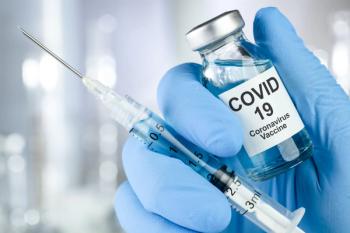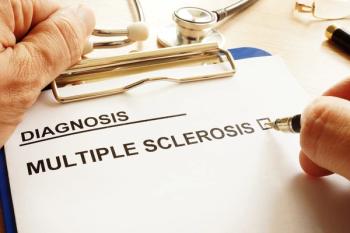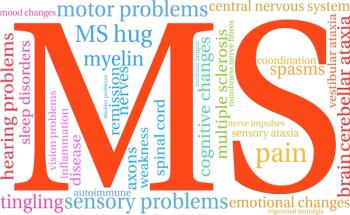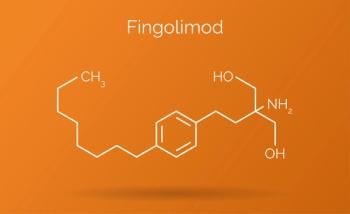
Multiple Sclerosis
Latest News
Latest Videos

More News

Panelists discuss how disability progression can be measured through practical clinical tools like patient-reported outcomes, timed walking tests, and dexterity assessments rather than relying solely on relapse rates.

New biomarkers enhance multiple sclerosis (MS) diagnosis, enabling earlier detection and improved patient care, transforming MS management across the health care system.

Pediatric patients with multiple sclerosis (MS) face significant challenges transitioning to adult care, risking treatment delays and long-term health outcomes.

Vaccination against COVID-19 is crucial for individuals with multiple sclerosis (MS), ensuring safety and effectiveness despite immunosuppressive therapies.

Advancements in B-cell therapies, including anti-CD20 and anti-CD19 monoclonal antibodies, enhance treatment efficacy and safety for multiple sclerosis and autoimmune diseases.

The findings indicate that the currently approved 600-mg dose of intravenous ocrelizumab is optimal to significantly slow disability progression for patients with multiple sclerosis (MS).

National MS Education and Awareness Month is celebrated each year in the US in March, after having been launched in 2003 by MS Focus: the Multiple Sclerosis Foundation and affiliated groups.

In 2025, each issue of Population Health, Equity & Outcomes will feature a profile of a health system leader transforming care in their area of expertise. This issue spotlights a conversation with Kavita V. Nair, PhD, of the University of Colorado Anschutz Medical Campus.

Data from a systematic review of 30 real-world studies show comparable discontinuation rates of ocrelizumab to those in pivotal clinical trials among patients with different types of multiple sclerosis (MS).

Subcutaneous ocrelizumab (SC OCR) was found to be safe for patients with relapsing and primary progressive multiple sclerosis (RMS/PPMS).

Compared with healthy controls, patients with multiple sclerosis (MS) had higher odds of filling prescriptions for gabapentinoids and other anticonvulsants in the 5 years prior to MS onset.

The differences did not appear to be associated with potential moderating factors like age, sex, or smoking status.

The most-viewed pieces of multiple sclerosis (MS) content covered remeylination therapies, the potential of cannabis treatment, potential predictors of MS, and reliable telemedicine developments.

The rate of frailty among patients with multiple sclerosis (MS) ranges from 17% to 66% among ambulatory patients, and frailty among MS patients is linked to a host of complications.

Read about the diverse array of research presented at this year's meeting, including novel technological advancements and insights into disease progression in multiple sclerosis (MS).

War-related psychological stress was associated with increased MRI-detected disease activity in patients with multiple sclerosis (MS).

Researchers review the safety, efficacy, and considerations for COVID-19 vaccination in multiple sclerosis patients, especially those on disease-modifying therapies, affirming the vaccine's overall benefit in reducing severe COVID-19 risks without significantly increasing MS relapse rates.

The findings show that increases in serum glial fibrillary acidic protein throughout B-cell depletion therapy are associated with disability worsening despite not relapsing—known as progression independent of relapse activity.

As with other disease states, biomarkers that can provide value across diagnosis, prognosis, and treatment response, have been heavily sought out to help guide optimal treatment decisions throughout the course of disease.

A new study aimed at exploring the relationship between obesity and multiple sclerosis severity using genetic data finds that higher BMI and other obesity measures were associated with increased disability progression in patients with MS.

New data suggest the frequency of damage and repair processes correlates with disease severity and disability in multiple sclerosis (MS).

The therapy reduced inflammation and appeared to slow disease progression in models, suggesting it could have similar impacts in humans.

The complex relationship between possibly impaired cognitive function in patients with multiple sclerosis (MS) and fasting blood sugar, fasting insulin, and insulin sensitivity levels is the focus of new work that advances understanding of intricate biological connections.

New research helps explain why a subset of patients with relapsing/remitting multiple sclerosis (MS) experience long-term heart rate slowing after taking fingolimod.

Various therapies have different impacts on brain volume loss in patients with relapsing multiple sclerosis (MS), a new study has found.










